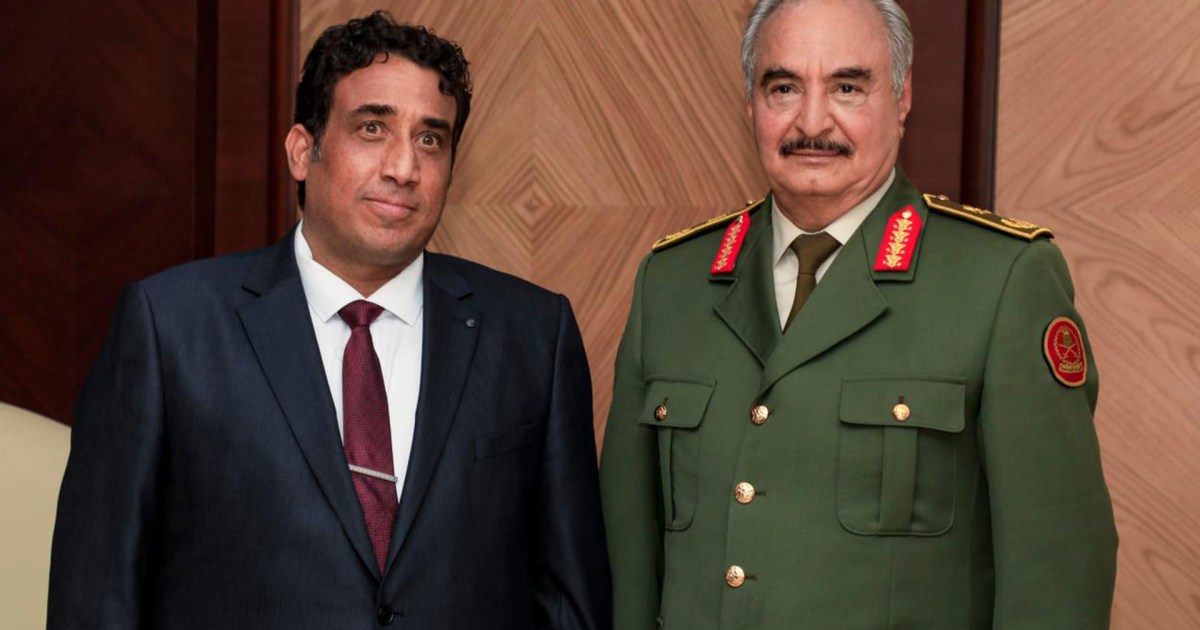The head of the Libyan Presidency Council, Muhammad Al-Manfi, met the retired Major General Khalifa Haftar and a number of Benghazi dignitaries, in the first such visit to the Libyan east, after his election as president.
The Haftar General Command page on Facebook stated that Haftar assured exiled support for his peace forces and their endeavors to preserve democracy, peaceful transfer of powers, and support for the new Presidency Council and the national unity government.
This visit comes a week after the exiled elected the President of the Presidential Council, along with Abdul Hamid Dabaiba as the Prime Minister, to lead the country through a transitional phase that is supposed to last for about 10 months until the presidential and legislative elections scheduled to take place on December 24 next.
Al-Jazeera correspondent in Tripoli, Nasser Shadid, said that exile would try to persuade Haftar and the military leaders to join the military formations to the new legitimacy of the Presidential Council and the government.
The exile will also try to attract members of the House of Representatives meeting in Tobruk, and persuade them to vote for the Dabaiba government.
The correspondent added that the exile - who is from Tobruk in the east of the country - will send messages to everyone from the city of Benghazi that he is coming to reform and unify the Libyans.
# General Command / Al-Rajma The Commander-in-Chief of the Libyan Arab Armed Forces, Field Marshal General Staff Khalifa Abu al-Qasim Haftar, received ...
Posted by the General Command of the Libyan Arab Armed Forces - official on Thursday, 11 February 2021
He explained that the exile will reside in the east of the country for a few days, during which he will hold meetings with military and political leaders and notables in Benghazi and Tobruk, noting that his visit to Benghazi constitutes a message to the military arms of the retired general.
Participants voted, in UN-sponsored talks in Switzerland last Friday, to choose a new presidential council and prime minister to oversee the pre-parliamentary and presidential elections scheduled for December.
Under the rules agreed upon by the participants in the Libyan talks, who were chosen by the United Nations to represent the competing political currents, the new Prime Minister (Dabaiba) will have 3 weeks to form a new government and present it to Parliament.

